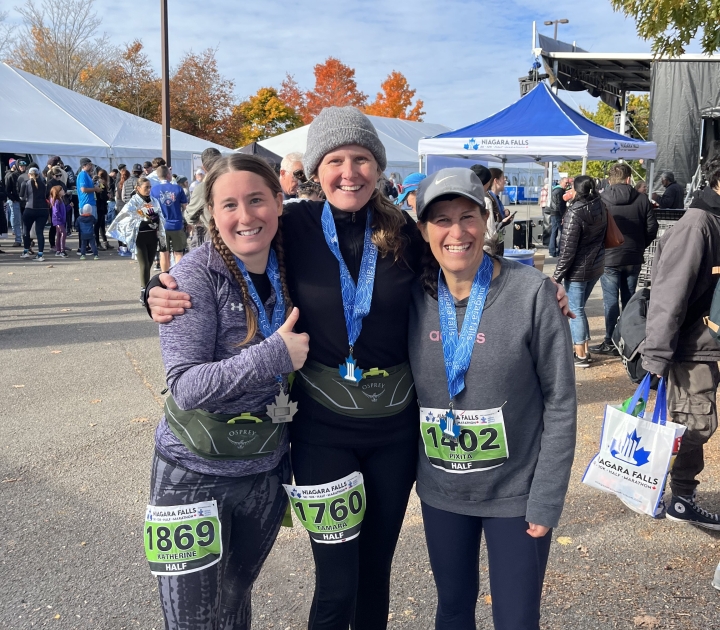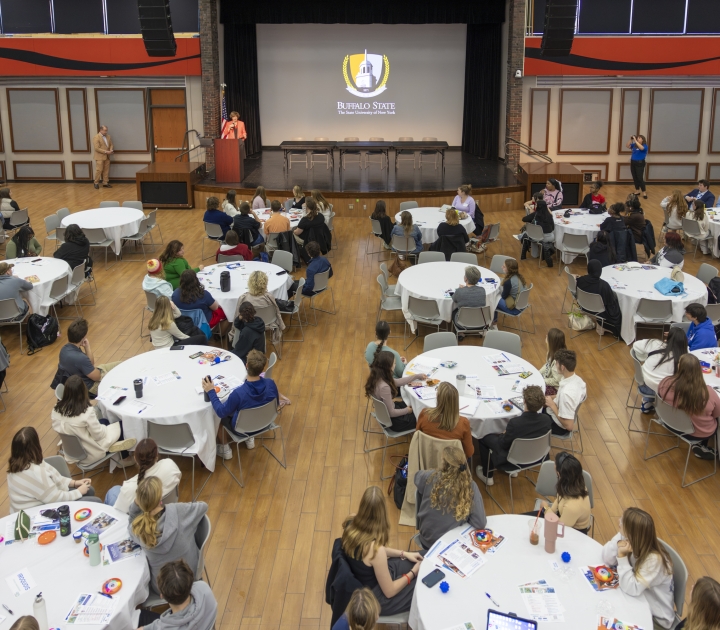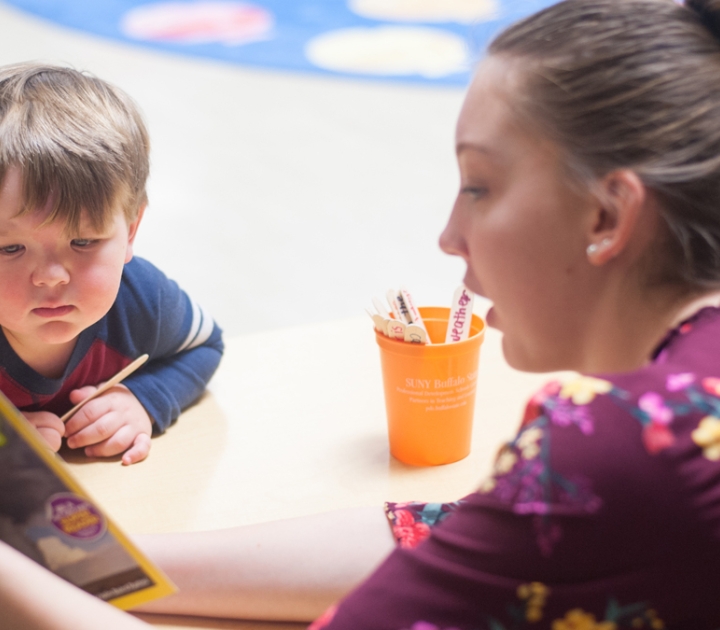
About Special Education and Childhood Education
The special education and childhood education program focuses on educating all students, including students with and at risk for disabilities.
Undergraduate special education and childhood education majors learn to teach general elementary education, as well as to specialize in working with students with a wide variety of disabilities such as learning disabilities, intellectual disabilities, autism spectrum disorders, and emotional/behavioral disabilities.
Graduates of the bachelor's program are equipped to serve in both general education and special education teaching roles. They are prepared to work with children with and without disabilities in a range of settings including general education classrooms, self-contained special education classrooms, and agencies.
Special Education and Childhood Education, B.S. Ed
Graduate Offerings
Graduates of the adult education and childhood education program may go on to pursue a number of advanced degrees at the university.
Special Education: Early Childhood Program, M.S. Ed
Teaching English to Speakers of Other Languages - TESOL C.A.S.
Compassionate Learning
Do you enjoy working with children on a personalized basis? Are you adept at responding to the needs of different learners? Are you patient, caring, and understanding of those whom others might see as different? Our Special Education and Childhood Education program might be perfect for you.
Program Features
Undergraduate majors in Special Education and Childhood Education study within a cross-categorical program focusing on the education of students who have a variety of regular and special instructional needs.
Included are students in disability groups traditionally associated with intellectual and developmental disabilities, physical/neurological disabilities, and learning and behavioral difficulties.
Students who pursue initial certification in both childhood special education and childhood education are particularly well qualified to work with students with special needs in integrated education settings.
Students in Special Education and Childhood Education complete coursework in elementary education and special education to be recommended for initial certifications as a teacher of childhood education (grades 1–6) and childhood special education (grades 1-6) in New York State.
Degree Information
Graduates of the program typically obtain teaching positions in
- inclusive classrooms
- resource rooms
- self-contained classrooms
- special schools
- residential facilities
- as consultant teachers in general education settings.
Students who specialize in special education develop a number of skills that will help them throughout their careers—regardless of the jobs they choose.
They’ve been trained to think critically, problem-solve in collaborative groups, analyze situations, use data to help develop goals and appropriate plans, and implement evidence-based practices and procedures.
Special education is and has been considered a high-need area across the nation. Many of our graduates have progressed in their careers as school principals, superintendents, college professors, and researchers.
Special education teacher jobs nationwide are expected to increase by 6 percent through 2024, according to the Bureau of Labor Statistics. The median annual salary for special education teachers in the United States is just over $55,000.
In addition to teaching, our special education graduates may serve individuals with disabilities in different capacities such as behavior specialists, job coaches, or direct support specialists.
Some of the specialty areas that exceptional education graduates pursue:
- Adapted Physical Education
- Attention Deficit Disorders
- Autism Spectrum Disorders
- Deaf-Blindness
- Developmental Delays
- Early Childhood Intervention
- Emotional or Behavioral Disorders
- Hearing Impairment
- Intellectual Disabilities
- Multiple Disabilities
- Orthopedic Impairments
- Reading/Literacy Special Needs
- Sensory or Developmental Disabilities
- Special Education Administration
- Special Education Homeschooling
- Specific Learning Disabilities
- Traumatic Brain Injury
- Visual Impairment
Buffalo State is committed to providing all education students with plenty of hands-on experiences outside the classroom. Below are some opportunities open to special education and childhood education majors:
Council for Exceptional Children: The local chapter of the international organization provides members with professional development, community volunteer activities, and fun events.
Best Buddies: This organization provides an opportunity for college students to be matched in a one-to-one friendship with individuals who have intellectual disabilities.
International Professional Development Schools (IPDS) Program: A number of short-term faculty-led study away programs in countries worldwide allow our majors to globalize their understanding of teaching and learning and develop cross-cultural competency.
Polar Plunge: The Exceptional Education Department, Buffalo State Best Buddies, and the Student Council for Exceptional Children help raise money for the New York Special Olympics during this “freezing for a reason” event every December at Woodlawn Beach State Park
Tutoring in Area Schools: Multiple opportunities are available for students, staff, and faculty to engage PK-12 students through one-on-one tutoring in schools throughout Western New York.
TeachLivE™: This computer-simulated, immersive, virtual reality classroom provides teacher candidates the opportunity to develop their skills in a safe, digital environment.
Excellent Reputation
Buffalo State’s Exceptional Education Department was one of the first departments dedicated to training teachers for students with disabilities. Graduates of our programs are highly sought after, both at the local and the national levels.
Professional Accreditation
The Exceptional Education Department has received accreditation from the Council for the Accreditation of Educator Preparation.
Stellar Faculty
Our Special Education and Childhood Education faculty are very involved in state and national organizations (e.g., New York State Council for Exceptional Children, National Council for Exceptional Children), and many are award-winning scholars.
Individualized Attention
Most field-based courses have fewer than 16 students. Other courses do not exceed 24 students and professors are able to differentiate certain learning experiences by students’ backgrounds and future career aspirations.
Strong Job Placement
Our graduates quickly find employment locally and nationally. The department is regularly contacted by districts across the nation regularly to recruit our graduates, especially in states like Texas that are experiencing a teacher shortage.



